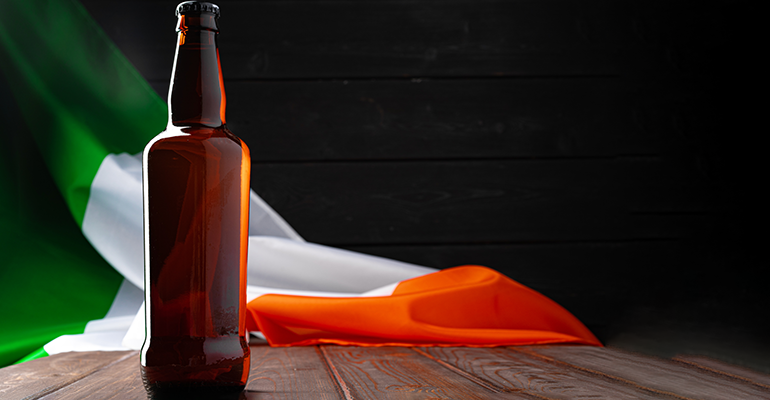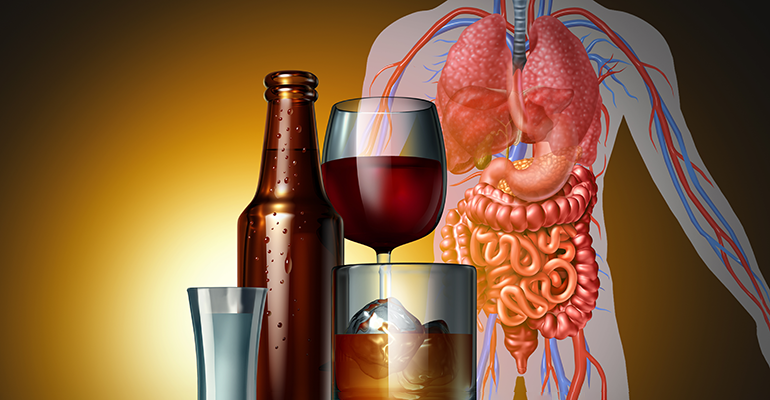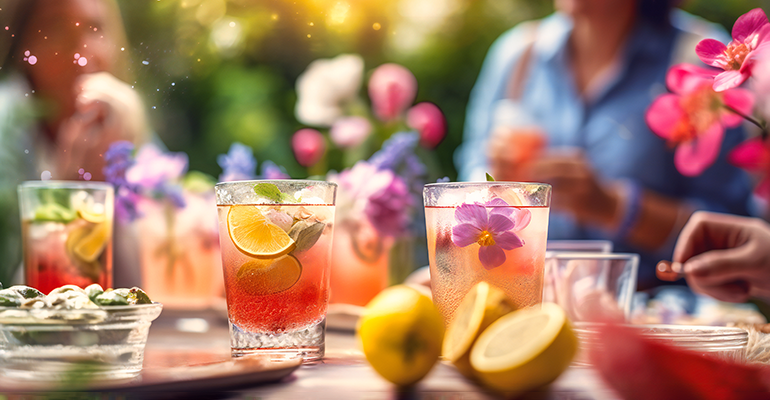News
Ireland forges ahead with alcohol health warning laws
2 Jun 2023
The Irish government has introduced the world’s first comprehensive health labelling of alcohol products. The alcohol industry is fighting back – but could this be a taste of things to come, and could the no- and low-alcohol category benefit?
In May, Ireland’s Minister for Health Stephen Donnelly signed into law the Public Health Alcohol Labelling Regulations 2023 and the remaining provisions of Section 12 of the Public Health Alcohol Act.

Together, these introduce what the government calls “comprehensive health labelling” of alcohol products sold in Ireland, both in retail outlets and in licensed premises, such as bars and pubs.
The law, which will enter into force on 22 May 2026 after a three-year grace period, means that alcohol products must state the calorie content and grams of alcohol in the product. They will also warn about the risk of consuming alcohol when pregnant and of the risk of liver disease and fatal cancers from alcohol consumption. The labels will direct the consumer to the Health Service Executive’s website, www.askaboutalcohol.ie, for further information.
Donnelly said: "This law is designed to give all of us as consumers a better understanding of the alcohol content and health risks associated with consuming alcohol. With that information, we can make an informed decision about our own alcohol consumption.
"Packaging of other food and drink products already contains health information and, where appropriate, health warnings. This law is bringing alcohol products into line with that."
He added: "I welcome that we are the first country in the world to take this step and introduce comprehensive health labelling of alcohol products. I look forward to other countries following our example."
Health impact of alcohol
Light to moderate drinking levels caused almost 23,000 new cancer cases in 2017; almost half of these were female breast cancers, according to a 2020 World Health Organization (WHO) report on Alcohol and cancer in Europe.
In Ireland, 60% of drinkers engage in monthly heavy episodic drinking with 24% doing so on a weekly basis, according to the National Drug and Alcohol survey findings for the period 2019 to 2020.
 © AdobeStock/freshidea
© AdobeStock/freshidea
The government said that most people are unaware of some of the dangers associated with alcohol. A 7,000-strong annual Healthy Ireland survey found that 79% of people were unaware of the risk of breast cancer associated with drinking more than recommended amounts and 60% were unaware of the bowel cancer risk.
Younger drinkers aged between 15 and 24 were typically less aware of the risk associated with heavy drinking than other age groups.
Fighting spirit: Industry opposes Irish law
However, the alcohol industry is preparing to fight the legislation, seeing it as a trade barrier in the EU’s single market.
spiritsEUROPE, the trade association that represents the interests of the European spirits sector, has submitted a formal complaint asking the European Commission to open an infringement procedure against Ireland for breaching EU law. It said the proposed measures risk fragmenting the internal market by deviating from rules on EU harmonised labelling and represented a disproportionate trade barrier that would hamper the free movement of goods.
The rules would require alcohol brands to add extra information to labels on products sold in Ireland.
“This would make it considerably more complex and more expensive for non-Irish producers and distributors from within and outside the EU to make their products available to Irish consumers,” said spiritsEUROPE.
Industry group Drinks Ireland also opposes the legislation. “... the government must explain why it is doing a solo run on alcohol labels, when the EU is already planning a harmonised approach to health labels and international processes have not concluded,” it said in a statement.
Ireland has notified the World Trade Organization (WHO) of the law and several countries, including the US, Cuba, Mexico, Australia, and the UK have raised objections.
Further opportunities for NoLo drinks?
The Irish regulation comes at a time when sales of low- and no-alcohol products – sometimes referred to as NoLo – continues to grow, including in Ireland.
 © AdobeStock/Real
© AdobeStock/Real
Latest data from Drinks Ireland estimated that non-alcoholic beer sales grew by 129% between 2017 and 2020.
The global market value of the NoLo category surpassed $11 billion in 2022, up from $8 billion in 2018, according to global beverage insights firm IWSR, which estimated that NoLo drinks have acquired 3.5% of the entire alcohol industry.
This is being driven by an increased interest in food and drink products that promote health and wellness. Sales within the no- and low-alcohol category are being fuelled by younger generations, particularly millennials and Generation Z consumers.
Significantly, alcohol manufacturers see long-term opportunities in the category and a number have made investments or launched products.
Ireland’s iconic drink, Guinness, launched an alcohol-free version, Guinness 0.0, while last month, Ingredients Network reported that Corona-owner and global alcohol manufacturer Constellation Brands invested in premium alcohol-free brand TÖST.
Related news

Oat Barista: Innovation for game-changing beverages
20 Nov 2025
Oat Barista is a clean label, sustainable, and innovative drink base specifically designed to create the perfect foam in one single ingredient.
Read more
How younger consumers are redefining ingredient choices and rejecting brand loyalty
18 Nov 2025
Gen Z and millennial consumers’ preferences for transparency, functionality, and purpose are “redefining the very nature of consumption itself”, says SPINS.
Read more
Hybrid formats and flexible positioning to disrupt category norms in 2026
17 Nov 2025
Trend forecasters expect food and drink to move more fluidly across occasions, functions, and formats as consumers seek versatility, novelty, and convenience.
Read more
Danone highlights digestive health as potential ‘tipping point’ for food industry
13 Nov 2025
Danone is betting on a food industry “tipping point” that will bloat the market for healthy products, particularly those related to gut health.
Read more
New UPF standard hoped to offer consumers ‘coherence and clarity’
10 Nov 2025
Ingredients companies are being urged to enter “a new era of partnership and innovation” following the launch of the industry’s first non-UPF verification scheme.
Read more
Faravelli at Fi Europe: Showcasing FARA® functional solutions for food and nutra
28 Oct 2025
At Fi Europe 2025 in Paris (stand 72M39), Faravelli showcases FARA® Customized Functional Solutions and a wide ingredient portfolio for food and nutra – delivering quality, innovation, and expertise.
Read more
Agrigum Redefined FIBER
27 Oct 2025
Agrigum has transformed gum acacia into a natural, science-backed fibre that supports gut health, sustainability, and innovation across global food and nutrition applications.
Read more
Expanding boundaries in food & beverage innovation
23 Oct 2025
IMCD and FrieslandCampina Professional expand partnership to deliver Kievit® across EMEA, enabling brands to enhance quality and accelerate time-to-market for tomorrow’s food & beverage creations.
Read more
Amazon Grocery launch aims to balance quality with affordability
22 Oct 2025
Global e-commerce giant Amazon has introduced a new private-label food brand, combining existing Amazon Fresh and Happy Belly products with new everyday items.
Read more
Powerade enters hydration space with launch of Power Water
21 Oct 2025
Coca-Cola’s Powerade brand has launched a zero-sugar, electrolyte-enhanced functional water, marking the brand's entry into the hydration space.
Read more